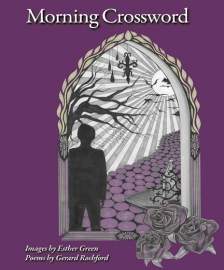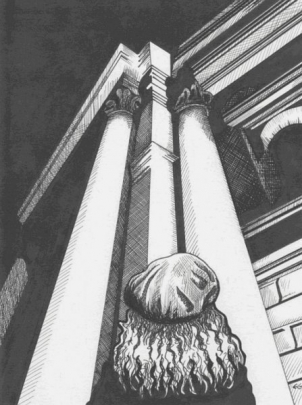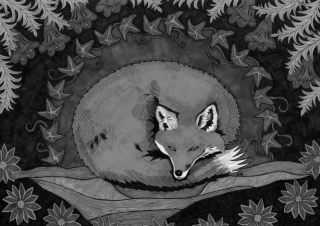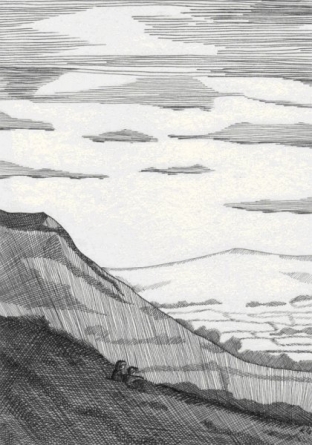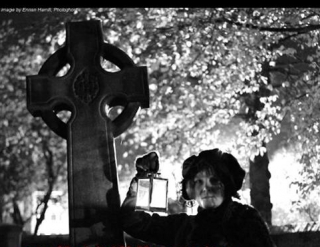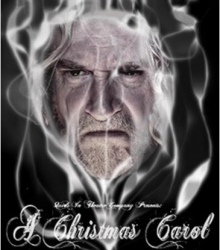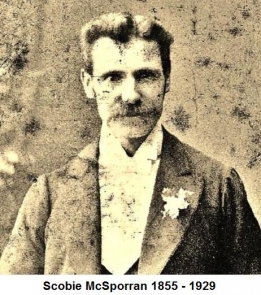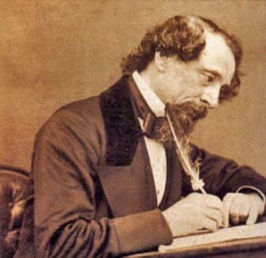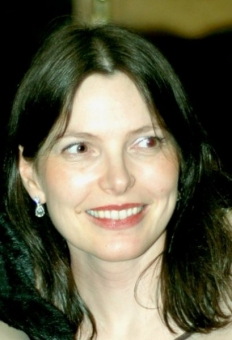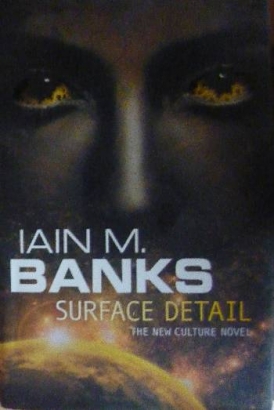As part of Word 2011 Book Festival in Aberdeen which runs from 9th to 15th of May, Celebrated Scottish writer Iain M Banks will be appearing at 7pm on Friday 13th May in the Arts Lecture Theatre, King’s College.
Aberdeen Voice is grateful for permission to reproduce the following article entitled ‘The Culture’ which appeared recently in Democratic Green Socialist online magazine.
Is there more to some science fiction than meets the eye? Steve Arnott takes a personal look at the ‘Culture’ novels of Iain Banks and argues that leftie sceptics of the genre are missing out on something big.
‘Perspective, she thought, woozily, slowly, as she died; what a wonderful thing.’ – ( Last line, Chapter One,
Surface Detail ) – Iain M. Banks
‘I didn’t want to leave. I didn’t want to keep them safe from us and let them devour themselves; I wanted maximum interference; I wanted to hit the place with a program Lev Davidovich would have been proud of. I wanted the junta generals to fill their pants when they realised the future is – in Earth terms – a bright, bright red.’ – ( Diziet Sma, The State of the Art ) – Iain M. Banks
‘…it all boils down to ownership and possession, taking and having.’ – ( The drone Flere-Imsaho summing up the feudal-capitalist society of Azad, The Player of Games ) – Iain M. Banks
I read Iain Banks’ newest
Culture novel
Surface Detail recently. Feeling I’d just read something exhilarating, deep and satisfyingly unique, and contradictorily wanting more of the same, I took the opportunity of systematically re-reading all of the Banks
Culture novels – some for the fourth or fifth time. Having made mutterings since the inception of
Democratic Green Socialist online magazine about writing something on the Banks
Culture universe, the inexhaustibility of these radical novels finally convinced me it was long past time to put fingertips to keyboard pad, and share my thoughts on the Culture with other readers of the DGS.
Not the least motivation for me doing so is that many on the left in Scotland seem mainly or wholly ignorant of these titanic, richly layered literary and philosophical works, even though they are authored by one of Scotland’s leading popular writers. Thus they are unable to participate in a meaningful discourse about the important – and genuinely revolutionary – ideas and concepts they embody and contain.
If you have never read any of Iain Banks’ Culture novels previously I hope this short essay can act as a bit of a primer and goad, and lead you to those books. If, like me, you’re already a fan, then I hope it might spark the beginnings of a discussion group on the left about the Culture.
What are the Culture novels? And what is the Culture? (I’ll stop using italics at this point).
Most readers of books are aware that Iain Banks publishes his non-genre novels under that name, and uses the middle initial M. when publishing his science fiction output. The Culture novels and novella represent the greater part of that science fiction output and are, in order of publication, Consider Phlebas, The Player of Games, Use of Weapons, The State of the Art, Excession, Inversions, Look to Windward, Matter and Surface Detail.
All of Banks’ science fiction is of a mind numbingly consistent quality – they are wide screen, intelligent space operas, thrillers that are both comic and tragic in turn, redolent with dizzying philosophical and scientific ideas painted on a universal canvas, splendidly baroque, grotesquely violent, but always with intimate, human, recognisable stories at their core. The Algebraist, for instance, would be a good example of a great Iain Banks science fiction novel that isn’t necessarily a Culture novel. But here I want to talk exclusively about the Culture, Banks’ greatest character, and surely his highest intellectual creation.
The Culture is the communist/anarchist/socialist/libertarian (delete/add according to taste) civilisation that is both background and protagonist in the loose and diverse group of Culture novels. A galaxy spanning, highly technological meta-civilisation that is both pan-human and pan-species, in which artificial intelligences (in many ways superior) are the civic equals of their biological counterparts, and in which men and women routinely meddle with their genes and enhance and change their body shape and sex, the Culture is a ‘Player’ in galactic terms; one of a small group of galactic civilisations who have evolved way beyond middling stellar empires or republics to where they are either approaching the possibility of Sublimation (throwing off all remaining material shackles and effectively becoming ‘something else’), or are busy (when not having plain good old-fashioned hedonistic fun) trying to do good in galactic terms by their own moral lights.
The Culture is in the latter category. Most folk remember ‘Star Trek’ and its off-shoots, and the famous ‘Prime Directive’ which forbade the Captains’ Kirk or Picard of the Federation to interfere in developing cultures. Both the Culture and the Federation are egalitarian societies that have abolished disease, poverty, war and money, but whereas the Star Trek Federation worldview is informed by 60’s, 70’s and 80’s progressive liberalism and cultural relativism, the Culture is an utterly bolshevik creation, informed by historical materialism, social critiques of capitalism and oppression, and a view of all things in the universe as being fundamentally transient and processal in nature.
Although it agonises about it and tries to do it using minimal possible force, the Culture is an interferer par excellence in emerging and developing cultures on planets and habitats throughout the galaxy.
When I first read that book back in the late eighties I was blown away by the spectacle and scale, the dark violence and inexorable sense of doom
Through the sometimes clandestine, sometimes open agency of its ‘contact’ and ‘special circumstances’ sections, it actively seeks to shorten the time civilisations will spend in a state of primitive barbarism, whether feudal, capitalist, or in state or religious tyrannies, (and sometimes mixtures of all of these), and help them progress to more enlightened and egalitarian states of being.
It is in the interstices of this pan-stellar revolutionary/evolutionary narrative, the doubts and moral shadings of the enterprise, its rewards and contaminations, that Banks finds his characters and his stories.
We were first introduced to the Culture through the eyes of one of its enemies; the Changer Horza Bora Gobuchul, a mercenary working for the religiously fanatic Idirans at war with the Culture, in the now classic of the SF canon, Consider Phlebas.
When I first read that book back in the late eighties I was blown away by the spectacle and scale, the dark violence and inexorable sense of doom. In the era of Star Wars, Aliens and Blade Runner I absorbed it as a wide screen space opera that would surely out do all others if ever made into a film.
All of Banks’ science fiction work has that hugely visual, imaginative cinematic quality – not just in the sense of making the page disappear before your eyes and immersing you utterly in his story, but in the literary sense of showing not telling his deeper themes. And deeper themes there are in all of his work. Though there is no lack of talky philosophical discourse between Banks’ protagonists, it is principally through the plot and development of the characters themselves, the tragic/redemptive weave of their pasts, presents and futures that we find a truly humane richness and a reflection of our own lives. Reading and re-reading Consider Phlebas I became aware that this wasn’t just the ultimate science fiction action movie in print but a more mythic and multi-layered tale. In following Horza’s journey through war, death, the hope of new life and irredeemable loss, we see his prejudices against the Culture and machine intelligence gradually undermined, until he realises he’s been fighting on the wrong side all along.
Banks followed up this stunner of a novel with another immediate classic. The Player of Games introduces us to Culture society and the machinations of its dirty tricks section Special Circumstances from within. Jernau Gurgeh is one of the great Game players of Culture wide renown, with a life devoted to the study and winning of games picked up from planetary and stellar civilisations throughout the galaxy.
Living a comfortable life of academic luxury on a Culture Orbital (a circular ribbon of diamond hard material 3 million kilometres in circumference, 10 million kilometres in diameter and a few thousand kilometres across its inner surface – few Culture citizens live on anything as primitive as a planet), Gurgeh is inveigled by Special Circumstances to travelling to the Empire of Azad, a cruel feudal capitalist stellar empire, to play the game of Azad, a game on which the whole society is modelled and run and which determines the station of every one of its subjects.
The Culture is physically vast beyond our capacity for imagination
Think Graham Green meets Blade Runner meets Hesse’s The Glass Bead Game, together with devastating social critique and an apocalyptic set piece climax, and all compressed into a shortish novel, a breathless, beautifully written narrative best read in a single evening.
Here’s the thing; all of Banks’ Culture novels are different – different characters, different stories, different storytelling techniques. Both the Culture oeuvre and the Culture universe are too vast to encompass in a short essay. Suffice to say the classically written two viewpoint, two plot narrative of Inversions is a much easier read for the relative newcomer than the multi-narrative, high tech Excession, and though both are fantastic novels that deeply reward the attentive reader, the reader will benefit from having already introduced herself to the Culture through the earlier novels. Look to Windward is a deceptively simple, yet tricksy tale, an exquisitely observed tragi-comedy of manners; Matter a return to epic scale and high adventure.
Yet there are also common themes which seem almost instinctively knitted into all of the Culture stories, and which are worth drawing attention to.
Perspective. The Culture is physically vast beyond our capacity for imagination. It is the pinnacle of what we might imagine a future socialist society to be, super technological, superabundant, superhuman, morally enlightened, profoundly egalitarian and long since moved from the realm of necessity to the realm of freedom. It has existed for thousands of years and will continue to exist for thousands of years, but it is only one of a number of galactic meta civilisations, and it too will fade away, collapse or transform itself into something different. All things come into being and pass away.
Our Earth, our world, is part of the Culture universe, but only incidentally, in the passing, as it were, as one of the multitude of barbarian primitive planets observed but not yet contacted. The events of Consider Phlebas occur ‘far, far away’ at the time of the Crusades. The Culture’s Contact section comes across us in AD 1977, in the novella The State of the Art, but decides not to intervene in our mixed up primitive society, and instead treat us as a kind of control experiment, clandestinely observed, to see whether we make it out of barbarism by ourselves, or destroy the planet by ourselves. The class struggle is universal but we are one speck of dust in a galaxy teeming with life and conflict.
Politics, and the price of doing good. Left politics runs through all the Culture novels like an invariable, but infinitely applicable, mathematical constant, and not in the bad “you’ll have three bowls of cold socialist realist porridge a day, young man”, kind of way.
This is not Doctor Who. The universe is not saved every week by waving a sonic screwdriver and ‘reversing the polarity’
Rather, Banks allows the politics to be a kind of emergent phenomenon, something that is created from the narrative, the moral questions and exigencies of character and plot, the observation of societies and the multifarious nature of the sentient conscious beings that populate the Culture universe.
As in his so-called ‘mainstream’ novels, it is very clear that Banks is an original, non-dogmatic thinker who has imbibed in his education much left wing discourse, and sipped of the notion of revolution and social progress as a moral categorical imperative. The clear theme that runs throughout the Culture novels is the price to be paid when persons, singularly or collectively, attempt to do good, or to maintain good in the face of reaction. That price may be physical destruction or emotional disintegration, it may be moral compromise or the shattering of cosy cherished beliefs, but there is always a price to be paid. Leading characters die, or become disillusioned, or are used for higher purposes. This is not Doctor Who. The universe is not saved every week by waving a sonic screwdriver and ‘reversing the polarity’. There is real death, real failure, real suffering. The redemptive aspect comes from doing what is right for wider social progress on an interstellar scale.
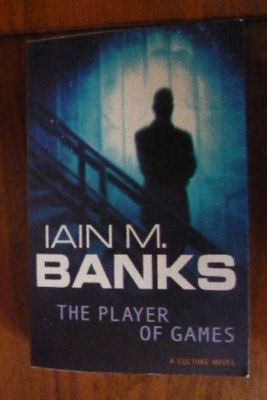
Human nature in ‘Utopia’. Banks’ Culture has often been referred to be critics as a utopia – mistakenly in my view. Literary utopias are all blank slate/human putty endgames from Revelations to Thomas More and onwards. They assume that human nature is flawed either because of some form of original sin or because society isflawed. The Utopia cleanses humanity of these flaws and either allows their ‘true’ humanity to shine through or makes them into the New Man. Dystopias are the cynic’s/realist’s response where attempts to make the New Man fail with disastrous, frightening, totalitarian consequences.
The Culture is neither Utopia or Dystopia because human nature in Banks’ vision is not a blank slate or human putty to be perfected or damned. Or more correctly ‘person’ nature – whether that person is human basic, human enhanced, machine or alien – arises from its evolutionary and contingent history and the very nature of sentience and social being itself. The lives of persons can be enormously enriched by a better society, but they do not become wholly New.
The protagonists of the Culture remain recognisable. They have fears and flaws, loves and hatreds, pettinesses and jealousies, egotistic personal drives and altruistic self-sacrifice; this is a mirror that holds up human nature as a complex constant. The new civilisation is about creating a better place for the great Bell curve of sentient beings to live their diverse lives in, not about creating a trillion Stakhanovite Aristotles in some endpoint socialist paradise.
When Iain Banks appeared on The Book Show recently he appeared to argue that artificial divisions between literary, mainstream novels and the genre novel can be misleading. He made the point that the literary novel itself is a genre novel with its own sets of rules and suppositions. Perhaps Banks himself has been hamstrung by the artificial division he himself (or his publisher) has created between the science fiction writer Iain M. Banks and the mainstream novel writer Iain Banks.
Or, just perhaps, Banks has been enjoying a near three decade long private joke at the assumptions and labellings of the critics. His ‘mainstream’ work is very fine, of that there is no doubt – The Wasp Factory, Espedair Street, The Crow Road and Whit are all excellent reads. But I would argue that Bank’s greatest contribution to literature are his Culture novels, and that perhaps that will only be finally seen and understood in the fullness of time.
Further, I would argue that the left has ignored the Culture as a potential source and reference point for discourse and that Banks, in his Culture novels, whether instinctively, or consciously, or a bit of both, has made a major theoretical contribution to socialist and progressive thought. The idea of fiction as a source of theory may be new and alien to many readers, but in this particular case I believe it to be true.
But an essay on a whole body of work can give only a flavour – and a flavour through the perceptions of one person at that. The proof of the pudding is in the reading. Go spacewards, young barbarians, and find new worlds.
Oh, and one final, teasing thought. What if something like the Culture actually existed?
Read more about Iain Banks at http://www.iain-banks.net/
For more info on Word 11 Festival, See: http://www.abdn.ac.uk/word/

